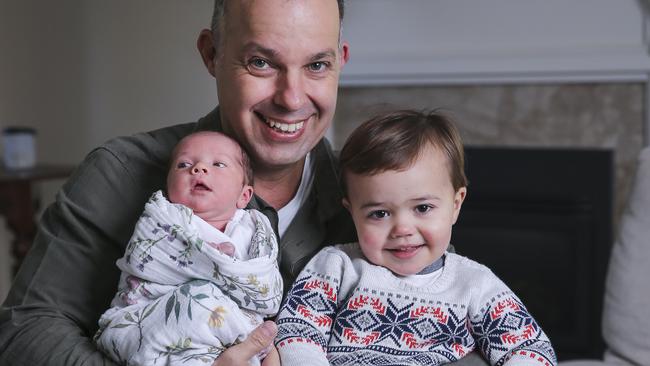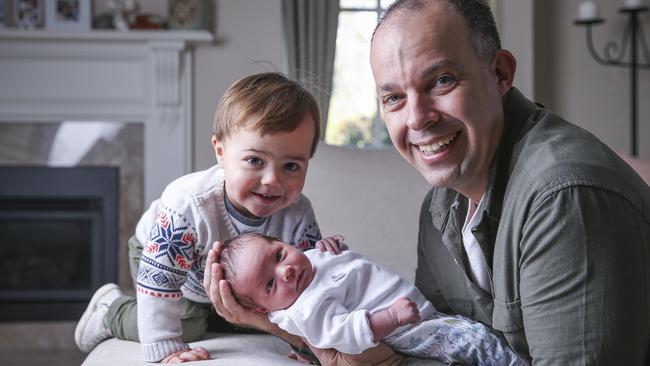Dads play rougher with baby boys than girls, affecting the child’s development
Fathers tend to treat baby girls differently to boys, with the difference in parenting styles affecting the development of children later on in life, according to a new study.

VIC News
Don't miss out on the headlines from VIC News. Followed categories will be added to My News.
Fathers tend to be more sensitive and less physically playful with baby girls than boys, a study has found.
Leading Australian researchers looked at the way fathers behaved towards 81 very premature babies and 39 full-term babies.
WHY YOU SHOULD LET KIDS SORT OUT THEIR OWN FIGHTS
NEW WEBSITE ANSWERS PARENTS’ BIG QUESTIONS
They found while prematurity didn’t make a difference, sex did. Fathers were less sensitive, more controlling and more hostile towards sons than daughters.
Senior author Dr Karli Treyvaud, from La Trobe University, said the sample was small and more research was needed to see if the results applied across the population.

Researchers suggest the difference may be explained in part by different play styles.
“Specifically, fathers of boys have previously been found to be more likely to display higher levels of physical play than fathers of girls, whereas fathers of girls are more likely to be involved in their child’s imaginative play,” said lead author Grace McMahon, of Monash University and the Murdoch Children’s Research Institute.
The study, published in the Journal of Pediatrics, found fathering styles in early years affect the development of babies.
Greater paternal sensitivity at 12 months was predictive of better language at two years, and more structured fathering involving firm but fair rules was predictive of higher cognitive development.
A more controlling fathering style was associated with more aggression, rule-breaking and behavioural problems.

WHY IT IS GOOD FOR CHILDREN TO BE BORED
“Overall, our findings provide further support that fathers’ parenting is important for child development, in both very preterm and full-term children,” Ms McMahon said.
“Paternal parenting that adequately guides and structures the child’s play is particularly beneficial for cognitive and language development.”
She said the findings suggested possible interventions to help fathers respond to the child’s cues and guide play.
Study participants were part of a broader Institute-run Victorian Infant Brain Study.
Eltham father-of-two Zarko Milicevic, 46, is conscious of the importance of his role in the lives of Millie, 14 days old, and Leo, aged 20 months.
“Millie is very calm and there’s a sense of ease about her,” he said. “Leo is always coming to find me and see what I am doing.
“It’s easy to communicate with both of them through happiness,” Mr Milicevic said.


